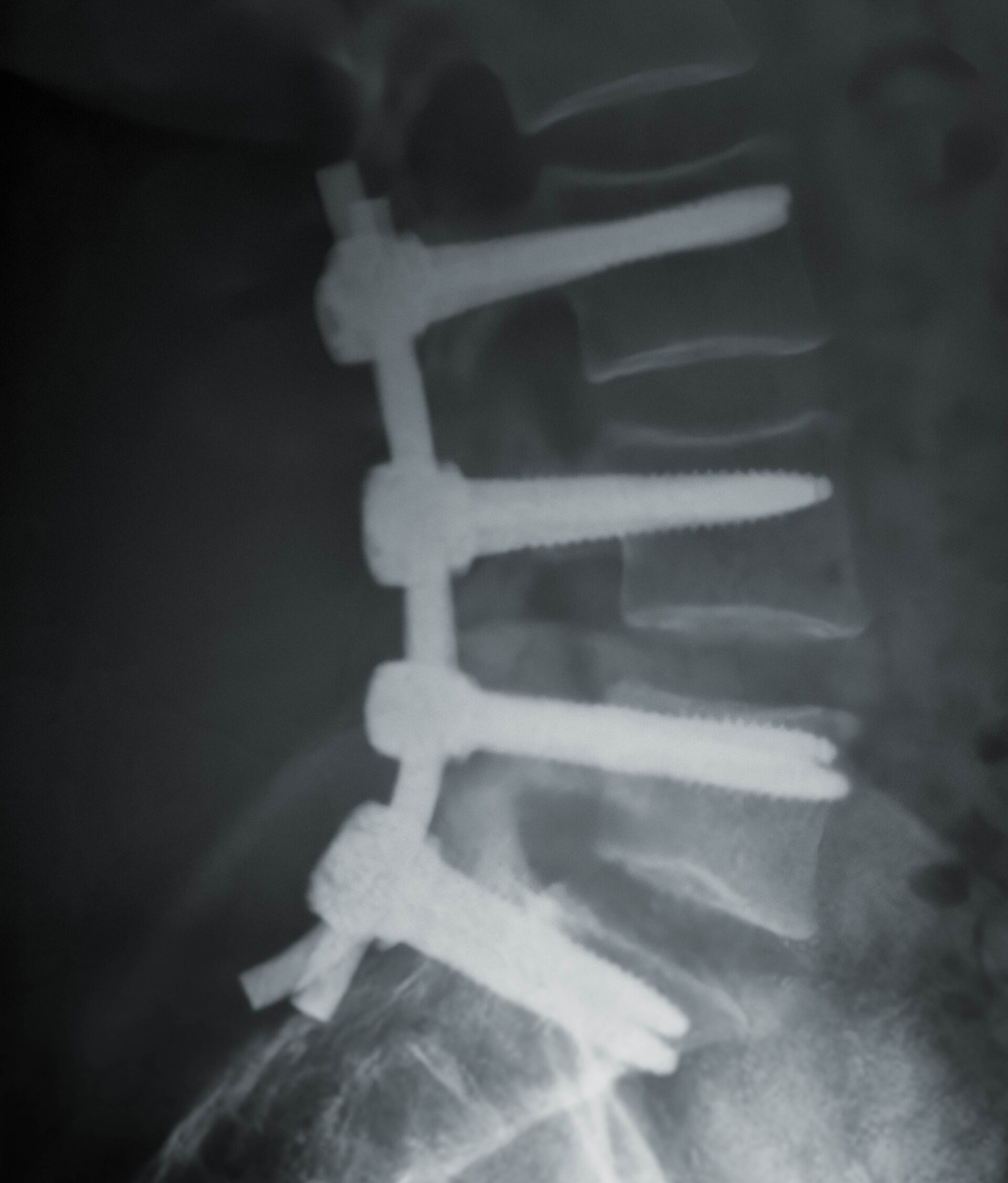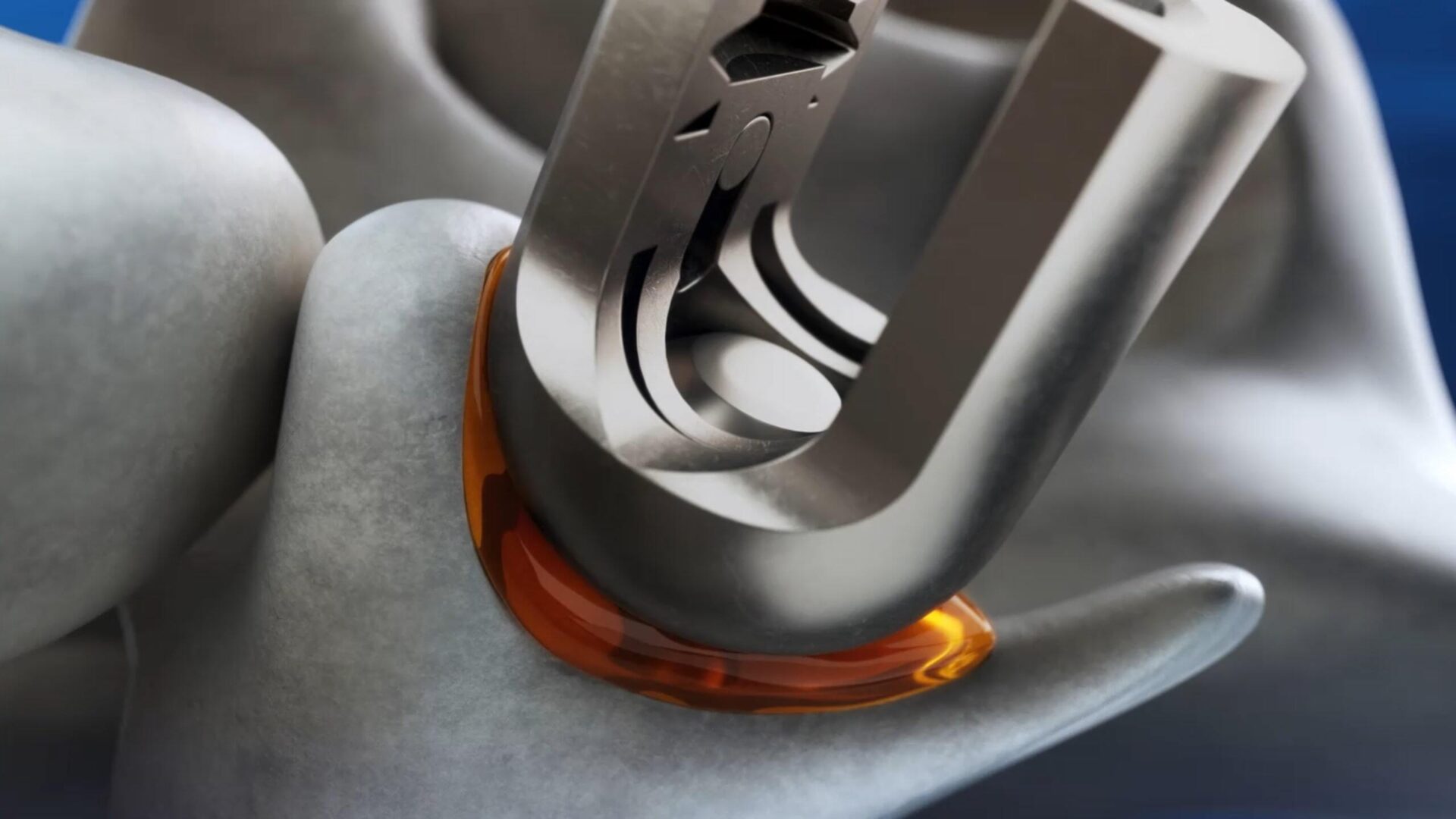Why is surgery still such a painful experience?
millions of patients facing acute post‑surgical pain
each year and replace opioids as the cornerstone of treatment
Spinal fusion surgery: the largest unmet need
Spinal disorders are often treated by fixating parts of the spine with pedicle screws. These procedures unavoidably cause debilitating pain for several days, currently treated with opioids in high doses. Pain and opioid-related side-effects hamper recovery and extend hospital stays.
The negative effects of opioids are globally recognized. However, for decades, no viable alternatives have come to clinical practice in the management of postsurgical pain.
Implantable anesthetics
A unique and highly elastic biodegradable hydrogel releasing a powerful local anesthetic for multiple days.
Designed to be attached to commercially available screws used in spinal surgery.
Our lead product: BR-003.
Implantable anesthetics
A unique and highly elastic biodegradable hydrogel releasing a powerful local anesthetic for multiple days.
Designed to be attached to commercially available screws used in spinal surgery.
Our lead product: BR-003.
Seamless integration with the existing surgical workflow
BR-003 is simply co-implanted without changing the placement or function of the pedicle screw.
The surgical procedure remains identical otherwise.
Optimal placement
BR-003 stays in place to effectively and reliably target the essential pain nerve fibres in the surgical site.
Locally blocking pain signals
BR-003 releases bupivacaine for 72+ hours. Bupivacaine is a safe and effective anesthetic that locally blocks pain signals and is well known for its use in dentistry and epidural analgesia.





